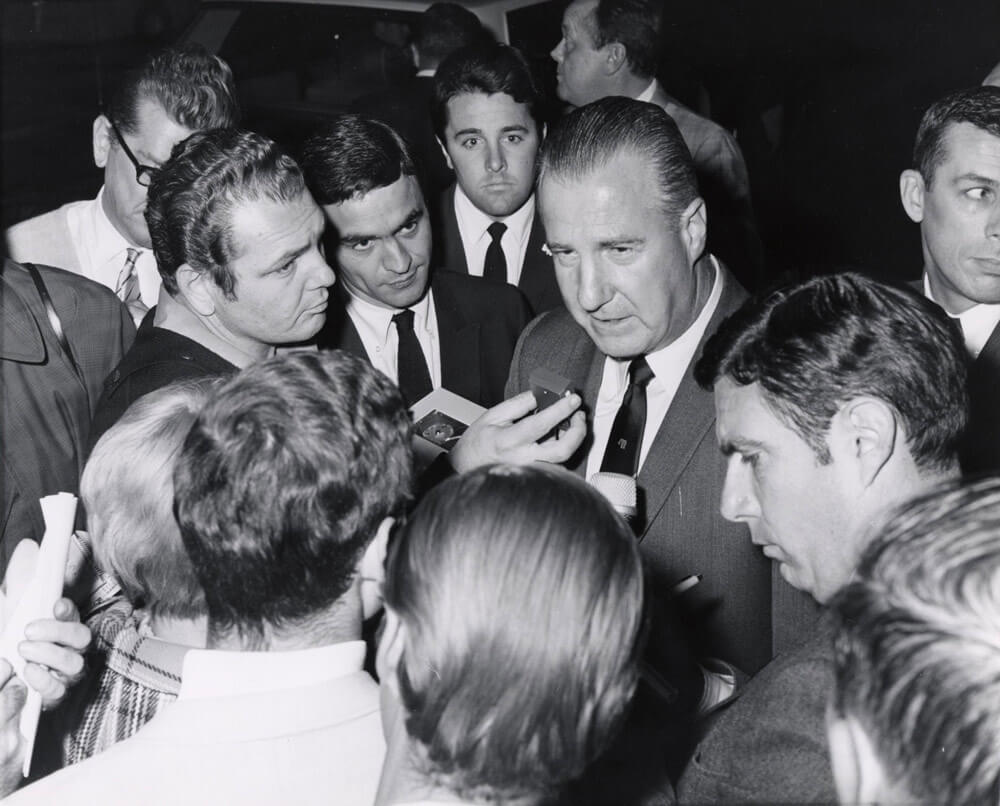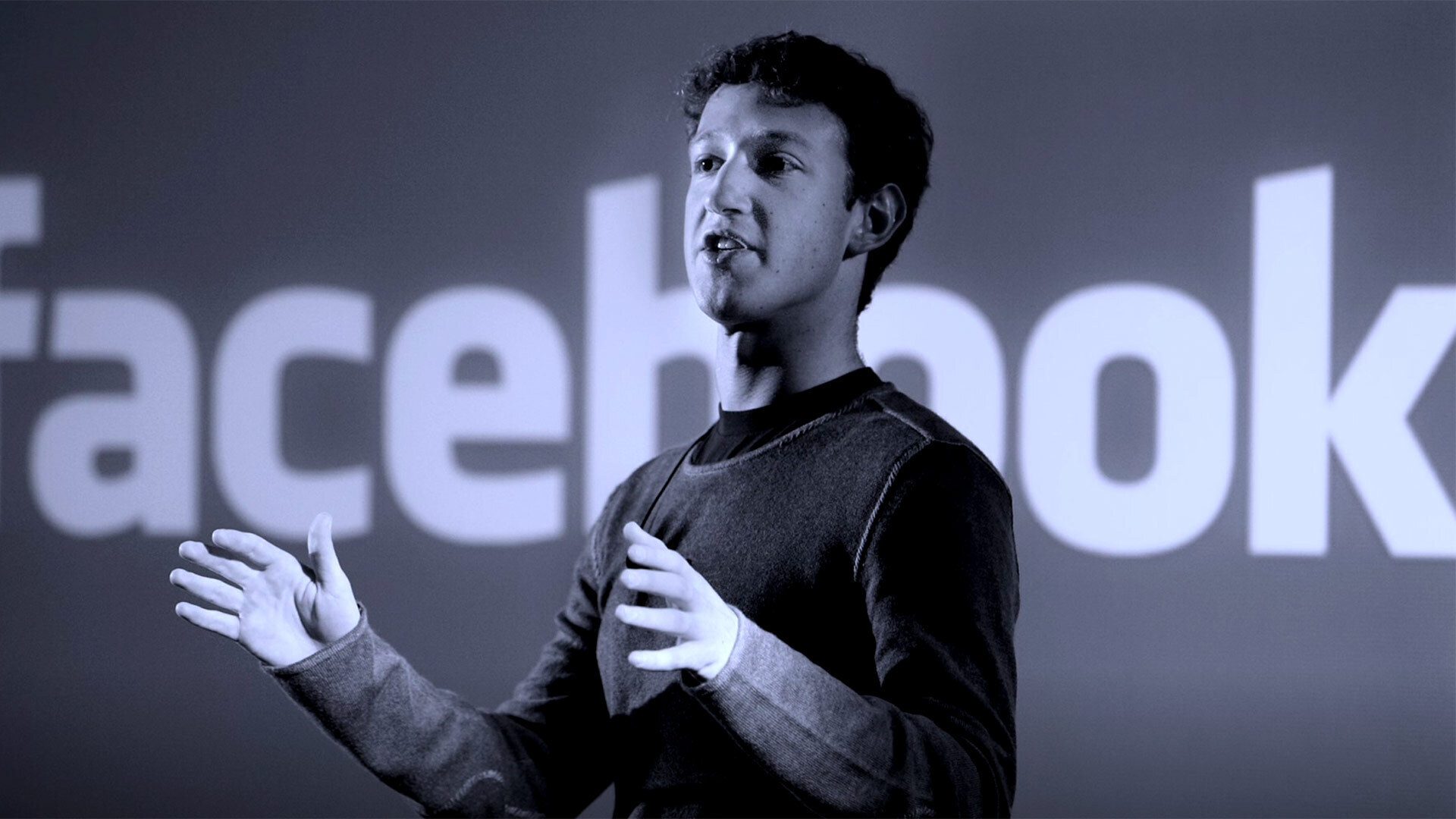- April 23, 2019
- By Liam Farrell
The PBS team behind “The Facebook Dilemma” documentary, including a University of Maryland journalism professor, has won a George Foster Peabody Award, while an MSNBC podcast on Spiro Agnew that relied on research conducted in the University Archives is up for another—the highest honor in broadcasting—today.
Dana Priest, the John S. and James L. Knight Chair in Public Affairs Journalism in the Philip Merrill College of Journalism, along with Raney Aronson, Anya Bourg, James Jacoby, Megan Robertson and others, won the prize for investigating the social media giant’s rise and global impact. The documentary, which aired last fall on “Frontline,” explored Facebook’s failures to protect user data or blunt the proliferation of disinformation.
“Most people have been really surprised by what they saw," Priest said of the documentary. “I think there’s more to do.”
In the radio/podcasts category being announced today, MSNBC anchor Rachel Maddow’s “Bag Man,” which delved into the saga of former Maryland Gov. and U.S. Vice President Spiro T. Agnew, was partially researched in the Agnew archives at Hornbake Library.
Maddow tweeted out her thanks to UMD and Frostburg State University’s Ort Library when the Peabody nomination was announced.
God bless you and keep you, Maryland college and university libraries!
— Rachel Maddow MSNBC (@maddow) April 10, 2019
This is 100% true. https://t.co/pLO2JxS4W8
The Agnew archive ranges from personal papers during World War II to audio recordings of speeches and his daily vice presidential calendars. It stretches about 750 linear feet, said Eric Stoykovich, interim collection leader of UMD’s Maryland and historical collections.
“It’s probably the largest cache of Agnew-related material you can work from,” he said.
Agnew was county executive in Baltimore County before being elected governor in 1966. He served only two years before joining Richard Nixon in the White House as a surprise vice president pick. Known for his visceral and controversial speeches, Agnew was investigated for getting kickbacks from government contractors and resigned in 1973, eventually pleading no contest to tax evasion.
In telling the story, Maddow’s podcast team included several pictures of UMD material on its website, including a memo for a speech where Agnew would attack the Justice Department; a card from a supporter telling him to “Hang In There, Baby”; and the schedule for April 3, 1973, showing a meeting with U.S. Sen. J. Glenn Beall, whose brother George was the U.S. attorney who had started the corruption investigation.
While UMD’s collection does not contain any “smoking gun” of corruption, Stoykovich said, a new catalog of personal papers is almost completed and can help future researchers shed further light on Agnew’s later business dealings with international clients—including arms dealers.
“There’s a whole trove of stuff not covered by the Maddow podcast that could be really interesting,” he said.
Alexander A. Pyles in Merrill College contributed to this article.
